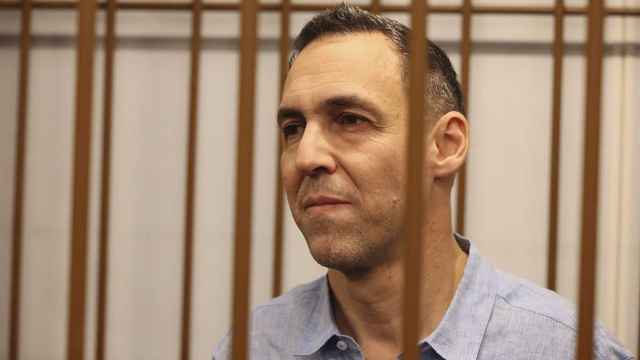A prominent U.S. lawmaker and advocate of the United States' role in space told a conference on the commercialization of space that the U.S. and Russia should team up for extraterrestrial projects — and suggested they start by cleaning up the hundreds of thousands of pieces of manmade space litter and capturing and deflecting asteroids hurtling toward Earth.
"Now that Russia is no longer a communist dictatorship and has been evolving in the right direction, we should reach out to them even more than we did in the past, along with our European allies, to have joint missions in space," Rep. Dana Rohrabacher said by Skype to attendees at the New Space 2013 conference in San Jose, California this past weekend.
"Even when it was the Soviet Union, even when they were our enemies, we were able to cooperate" in space, the vice chairman of the House Science, Space and Technology Committee noted.
The international space team could "clear the space debris that threatens to limit our use of space" and work to "identify and deflect near-Earth objects from hitting Earth," the California lawmaker said.
But Rohrabacher's vision of nations working together excluded rising space power China, a country that the U.S. congressman said should be sidelined from a team effort in space because of its poor human rights record and technology theft.
"As long as there isn't more reform — any reform — in China, I don't think it's wise for us to be doing joint efforts and have working cooperation on technology projects with the world's worst human rights abuser who has a history of stealing technology," he said.
"But the other folks, we should and we have to, if we want to have a vibrant space program."
Rohrabacher was speaking on the final day of New Space 2013, a three-day event focused on the "potential and challenges of the emerging commercial space industry."
He suggested increasing private industry's role in NASA projects, such as the one to capture an asteroid, saying it would be a good way to "minimize bureaucracy and maximize entrepreneurship," an oft-repeated chorus at the conference.
Estimates for the NASA project to capture an asteroid, which includes building a new rocket to carry astronauts there, are in the billions of dollars.
Bob Richards, the CEO of Moon Express Inc., a privately funded company created to "establish new avenues for commercial space activities benefitting life on Earth," told the conference his company is developing a spacecraft for less than $50 million.
Rohrabacher also said deflecting near-Earth objects should be "a multinational effort" and cited the massive meteor that exploded in February over Chelyabinsk, shattering windows, damaging buildings and injuring more than 1,500 people. Had it been on a slightly different path, he said, it could have slammed into Earth and killed thousands.
Russia's Emergencies Minister Vladimir Puchkov said in June that his ministry and the U.S. Federal Emergency Management Agency (FEMA) will work together to "develop systems to protect people and territory from cosmic impacts."
And in May, Natan Eismont of the Space Research Institute of the Russian Academy of Sciences said it is possible to defend the planet by moving near-Earth asteroids into the path of incoming space threats and deflecting them.
The New Space 2013 conference also looked at thornier aspects of the commercialization of space, including whether private companies should be allowed to use the resources they extract in space for private gain and which earthly laws should be used to resolve business disputes in space.
A Message from The Moscow Times:
Dear readers,
We are facing unprecedented challenges. Russia's Prosecutor General's Office has designated The Moscow Times as an "undesirable" organization, criminalizing our work and putting our staff at risk of prosecution. This follows our earlier unjust labeling as a "foreign agent."
These actions are direct attempts to silence independent journalism in Russia. The authorities claim our work "discredits the decisions of the Russian leadership." We see things differently: we strive to provide accurate, unbiased reporting on Russia.
We, the journalists of The Moscow Times, refuse to be silenced. But to continue our work, we need your help.
Your support, no matter how small, makes a world of difference. If you can, please support us monthly starting from just $2. It's quick to set up, and every contribution makes a significant impact.
By supporting The Moscow Times, you're defending open, independent journalism in the face of repression. Thank you for standing with us.
Remind me later.





